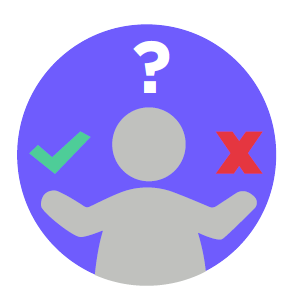What Ethics Is Not (Part 2)
April 23, 2018
We have already reviewed what ethics is, and last week we began discussing what ethics is not. Today, we will wrap up our discussion of what ethics is not.
We are pulling from Claire André and Manuel Velasquez’s article, “What is Ethics?” The two authors discuss what ethics is by virtue of speaking about what it is not, perhaps the best way to begin any discussion about ethics in a classroom environment.
- Ethical behavior is not always aligned with what “everybody else does” or even with what is generally regarded as socially acceptable. Just because one is at a competitive disadvantage in a class where there is a cheating ring does not justify joining in and cheating also. Until recently, smoking cigarettes in public places was the norm even though it is well-documented that second-hand smoke endangers everyone’s health. Yet, smoking in public areas remains legal in 23 states.
- Ethics is not an exact science. It is not based on a set of scientific formulas which consistently yield the same results or predict, with certainty, the right approach in every moral quandary. As Aristotle observed in 350 B.C.E. in his Nicomachean Ethics, Book II, “But to what degree and how seriously a man must err to be blamed, it is not easy to define by [one] principle,…such questions of degree depend on particular circumstances, and the decision lies with perception.”
In other words, every situation is different and we need to be able to assess how we should conduct ourselves based on the merits of the relevant factors and what points us toward the best course of action.

So to summarize both this and the previous post, if we cannot rely on our feelings or gut instincts, religious creed, the law, social norms, scientific methodology, or anything absolutely, is learning to be ethical simply a fool’s pursuit? To put it differently, why should we make Generation Y care about Ethics if it seems like such a non-definitive undertaking and concept?
To answer these questions, gain more insight into what ethics is and is not, and learn how to effectively assess and develop ethical decision-making skills in your students, access your free eBook – Assessing and Developing Ethical Decision-Making Skills.


.png?width=80&name=1-questions%20(1).png)